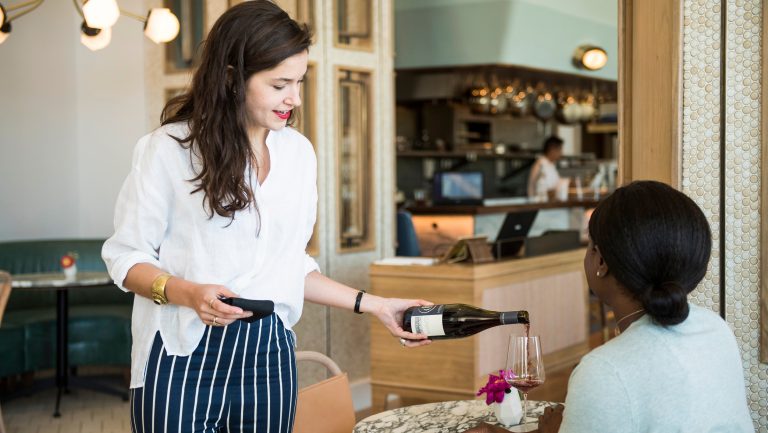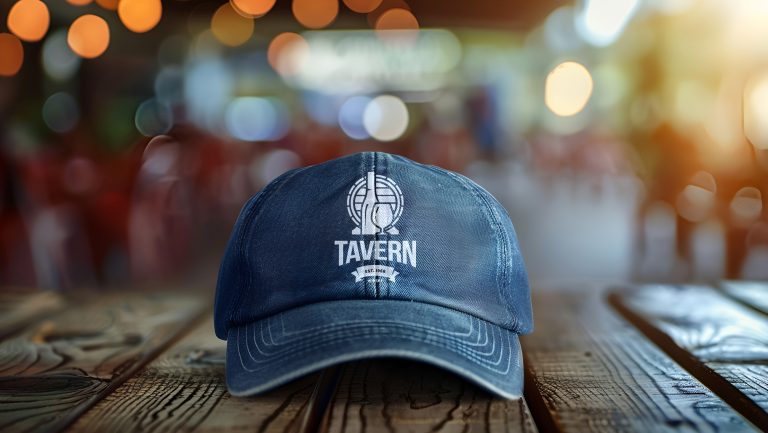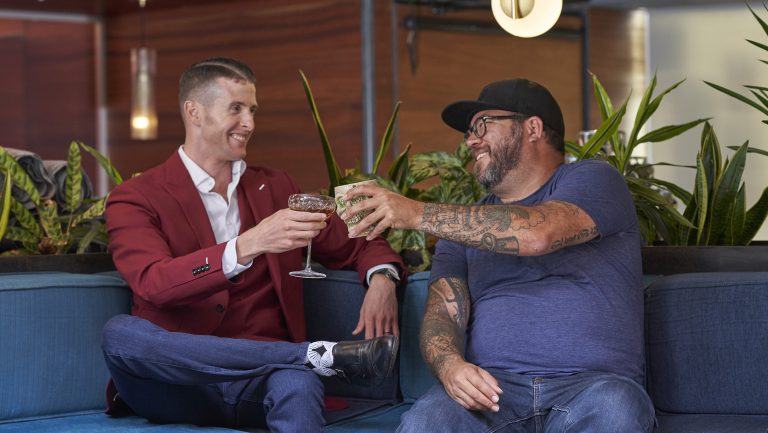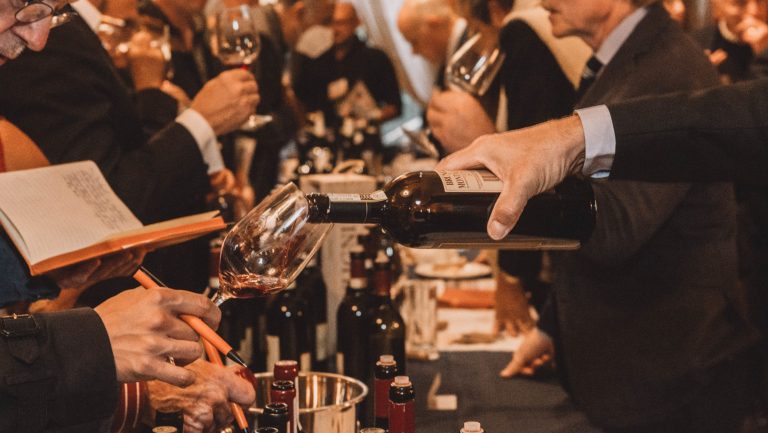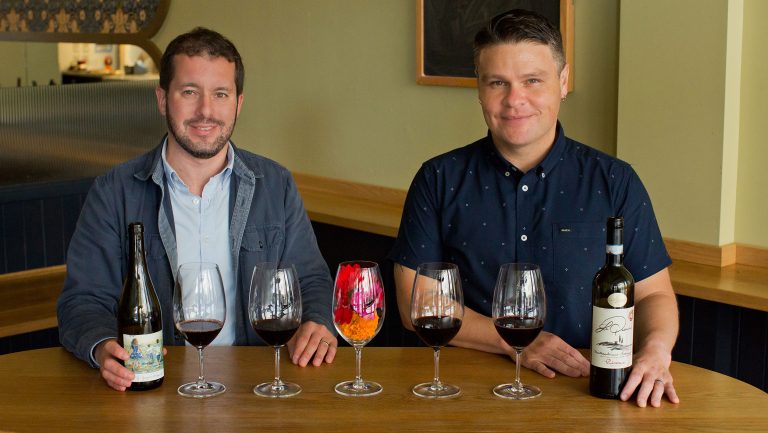When he and his partners launched Walnut Street Café in Philadelphia this summer, Patrick Cappiello kept his eyes open. “I knew about Pennsylvania Liquor Control Board laws, so it was in my mind that I needed to understand what the hype is about.”
The wine director at New York’s Michelin-starred Rebelle, Cappiello is a 25-year veteran of the industry. But Philadelphia is a particular proving ground. A city distinguished by excellent restaurants, it is also located in a control state, where liquor sales are managed by a government agency.
Pennsylvania is among 17 states that operate this way. Its Liquor Control Board runs the Commonwealth’s 607 stores, and it acts as a middleman in wholesale transactions, inserting itself between distributors and restaurants, and exacting markups in taxes and fees. Distributors ship to and get paid by the PLCB; restaurants pay and pick up from the PLCB. There are no direct deliveries or wholesale prices. The arrangement brings complexity, particularly when it’s subject to legislative changes. Margins, timing, availability—they can all be tough for wine directors here. “As an out-of-towner moving here,” Cappiello says, “it’s maddening and shocking.”

Don’t miss the latest drinks industry news and insights. Sign up for our award-winning newsletters and get insider intel, resources, and trends delivered to your inbox every week.
But that doesn’t mean you can’t build a great wine list. Veterans and newbies agree that the City of Brotherly Love is becoming a real wine city, one that offers restaurants unique opportunities—if they can navigate the system. Some of the town’s smartest beverage managers, distributors, and PLCB employees have advice for doing just that.
Work with the Right Store
Each Philly restaurant has a PLCB store that handles its orders. But not all stores are created equal. Some are more deft at handling fine-wine purchases. Cappiello learned that the hard way when someone suggested that if he ordered through a suburban store, he wouldn’t have to pay the city’s 2 percent sales tax. He gave it a whirl but was stymied by foul-ups.
Now he works with Max Gottesfeld. A wine specialist at a Premium Collection Store—one of 93 PLCB shops that specialize in fine wines—Gottesfeld exemplifies the service that makes a beverage director’s life easier. He keeps his Chestnut Street location at a wine-friendly 69 degrees. He schools wine directors on using the PLCB’s ordering portal. And he hunts down wines himself, searching shop inventories across the state for bottles to have transferred to his store. He has even helped make inroads with reluctant suppliers. That’s how Vetri Family beverage director Steve Wildy got a case of Albert Boxler Riesling: Gottesfeld called Jennifer Brown, then a PLCB buyer in Harrisburg and now a partner at Verity Wine Partners, a New York-based distributor. Brown worked her connections with importer Kermit Lynch to secure Wildy an allocation.
Such a buy is called a Special Liquor Order, or SLO. The bulk of restaurant orders, SLOs cover wines and spirits outside the PLCB’s regular inventory. Gottesfeld introduces wine directors to the store workers who handle these orders. Historically, these employees checked, corrected, and repackaged SLO shipments. As per changes implemented on October 1, they do not open cases anymore, but they still receive and hand them off. Gottesfeld suggests that for the process to work smoothly, beverage directors should curb their frustrations. “They just have to come in and not be a prick,” he says, “which is really hard.”
It helps to find a store with a wine specialist who shares your palate. Cappiello knew he was dealing with a kindred spirit when he saw pét-nats and other eclectic bottles on Gottesfeld’s shelves. A specialist elsewhere might focus on classics. Says Michael McCaulley, beverage director and partner at Philadelphia’s Tria wine bars, “When you go to a restaurant, the personality of the buyer should come through. It’s the same thing at PLCB stores.”
Shore Up Suppliers
When planning Walnut Street Café’s list, Cappiello says, “The first thing I did was call every one of my importer friends to say, ‘We’re going to Pennsylvania. Are you willing to rep those wines there? I promise we will support you.’”
He was participating in a Philadelphia tradition—begging suppliers to bring new wines to town. It’s an effort that helps all boats rise. “Ten years ago,” recalls Wildy, “Pennsylvania was this dark tower to any outside distributor that wouldn’t want to deal with the bureaucracy.” When pros like Wildy found a wine they wanted, they helped set up meetings between importers and the state, or with PLCB-savvy distributors. “As more restaurants opened that were selling cool things, Philly proved itself a market for distributors,” Wildy says. “The amount of wine that has come into the market in last five years has been astounding.”
It’s still not a cakewalk for suppliers here, though. Jason Malumed, partner at importer MFW Wine Co., says that without wholesale discounts, there’s little incentive for restaurants to buy more than a few bottles at once. “My time,” he says, “is better spent selling to retail stores in New Jersey.”
Since suppliers set SLO base prices, restaurants that can buy in volume are able to bargain for deals. McCaulley buys for three locations and pours mainly by the glass, so suppliers know they’ll get product exposure and movement from him. “They say, ‘Buy three cases for this special price’ because it’s a one-shot delivery,” he explains. “Or we buy 30 or 40 cases over time if they code it at a better price.”
Since Pennsylvania has no wholesale pricing, whatever price McCaulley negotiates must be offered to other buyers. So a distributor must carefully weigh such deals. Maintaining good relationships helps McCaulley nail his price.
Be Flexible with the Margins
Markups, roundups, fees, and taxes here result in wine that is historically 50 percent more expensive than in other states. A 2016 PLCB overhaul called Act 39 did little to change this. Although the markup on SLOs before additional charges decreased from 30 percent to 10 percent, Act 39 also did away with a 10 percent licensee discount. When you do the math, Malumed says, a bottle with a $10 base price went from $19.71 in licensee cost to $18.87—a pittance in savings relative to what restaurants in other states pay. The pricing makes by-the-glass markups particularly cost-prohibitive for customers. “People have to get very creative,” he says, “to run successful wine programs here.”
Creativity is exactly what some Philly pros use to handle their margins. Tim Kweeder, the general manager at Kensington Quarters, sells wine on tap to help balance things out. Kegs bring better value, so he can charge less for those glasses. McCaulley uses the opposite strategy on mature wines, whose rarity and market demand can provide him a higher margin. Teaser events like Ten-Year Tuesday, when McCaulley pours a pair of older wines at $10 a glass, lure guests interested in exploring his inventory further.
Like Kweeder and McCaulley, Cappiello doesn’t use standard markups; he sets each price according to the product. Unlike at Rebelle in New York, where his wine list is 133 pages long and yields 50 percent of overall sales, he launched Walnut Street Café with just 130 wines, letting beer and cocktails drive profits. In the meantime, he’s building the café’s wine cred by pouring 50 wines by the glass and offering everything on the list in half-bottle portions. “The best way to get people excited and make it affordable,” he says, “is to have it all open and available.”
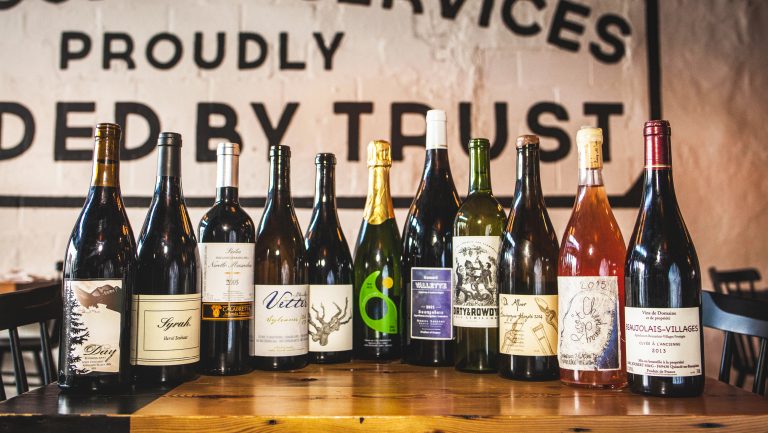
Plan Ahead
With the Liquor Control Board creating a dam between suppliers and restaurants, the flow of product can be slow. “I do a lot of scheduling in advance,” says McCaulley, “because you need time for the product to be processed.” From order to delivery takes roughly five days, he estimates. The problem arises with wines that are new to the system. “If a product is not available in Pennsylvania,” he says, “you have to get it coded, and that can take up to a month.”
Former PLCB buyer Brown explains why this is: “Data entry. I was buying over 700 products that I had to manually enter into an old, slow Oracle system.” The bottleneck, she says, makes advance planning essential for restaurant openings and special events.
The extra steps involved in shipping wine to and from the PLCB cause further delays. To avoid these, Tim Kweeder expands his chore list. “I pick up personally as opposed to hiring a third party,” he says, “because that can add time and frustration.”
Still, plenty of wine has been left behind at the PLCB, says Gottesfeld, because restaurants simply fail to pay for and pick it up. That’s one reason the board has changed the rules of payment. As of October 1, licensees must prepay for orders before vendors can even ship them. The move makes it more important for restaurants to budget ahead.
Roll with the Punches
Insiders agree that the PLCB is experiencing a period of volatility. Take-out wine sales by restaurants and groceries, direct vendor payments, changes to markups—all these were enacted in Act 39. More revisions will likely come. Direct vendor payments, for instance, are alleged to be a first step to direct delivery. And with large grocery chains getting into wine sales, says Brown, those entities may have the clout to prompt further reforms.
The growing pains come as the PLCB is reporting a $114.3 million loss for fiscal year 2017. Jason Malumed sees the shortfall as fatal. “I believe there is a definitive timeline for the PLCB’s death,” he says. Whether he’s right or not, aspiring Philly players must always keep abreast of the rules and be ready to change their game plan accordingly.
Still, the pros agree that Philadelphia is worth the trouble because, at this stage, it’s a thrilling place to pour wine. “You’re coming into a consumer base with so much enthusiasm and so much they’ve been introduced to as the market is opening up,” says Wildy. “There’s very little of the jaded wine drinker in Philly.” The same can be said for its wine directors. With everything it takes to make a wine list sing in Philadelphia, enthusiasm may be the number one asset.

Dispatch
Sign up for our award-winning newsletter
Don’t miss the latest drinks industry news and insights—delivered to your inbox every week.
Betsy Andrews is an award-winning journalist and poet. Her latest book is Crowded. Her writing can be found at betsyandrews.contently.com.

